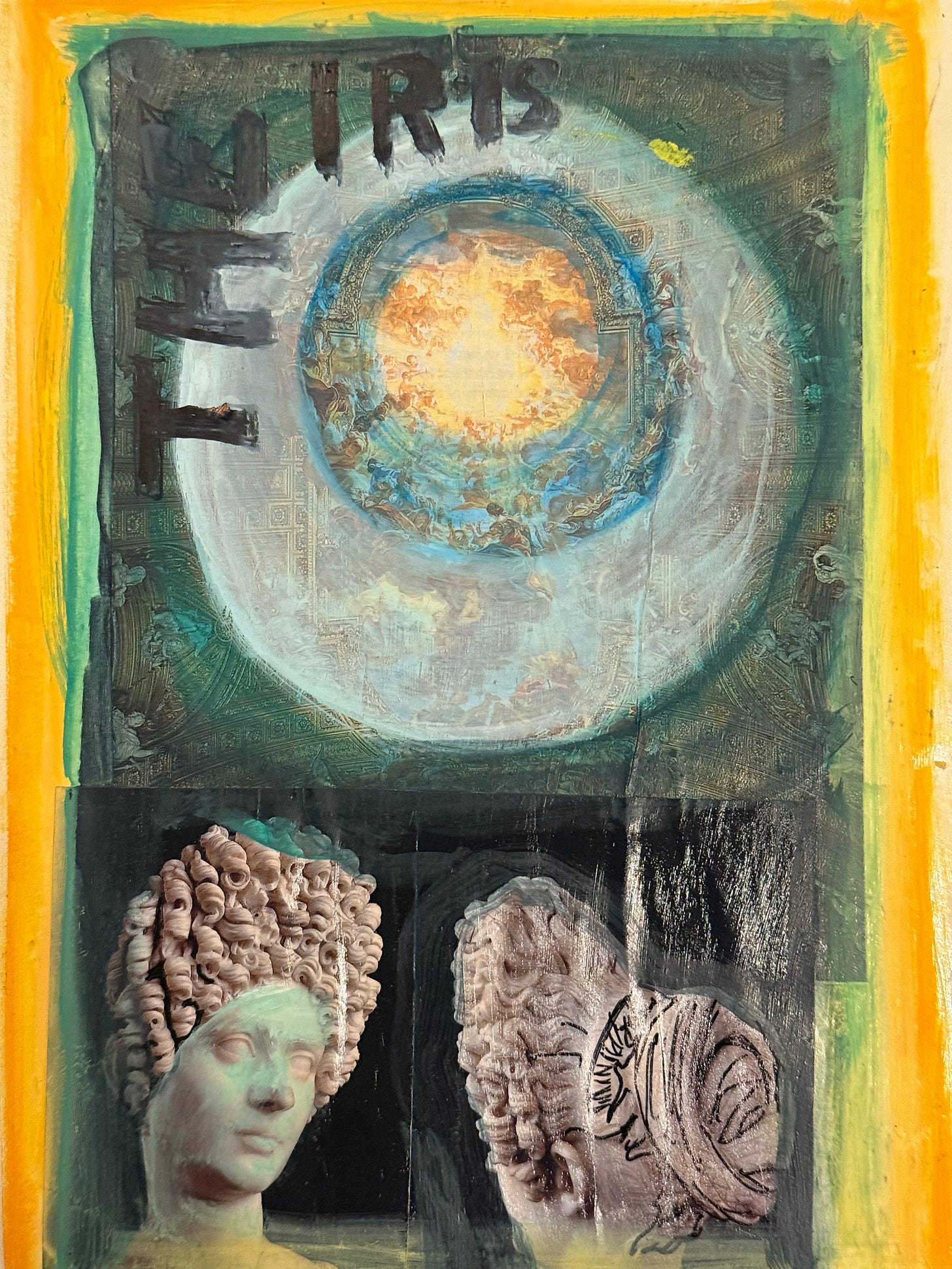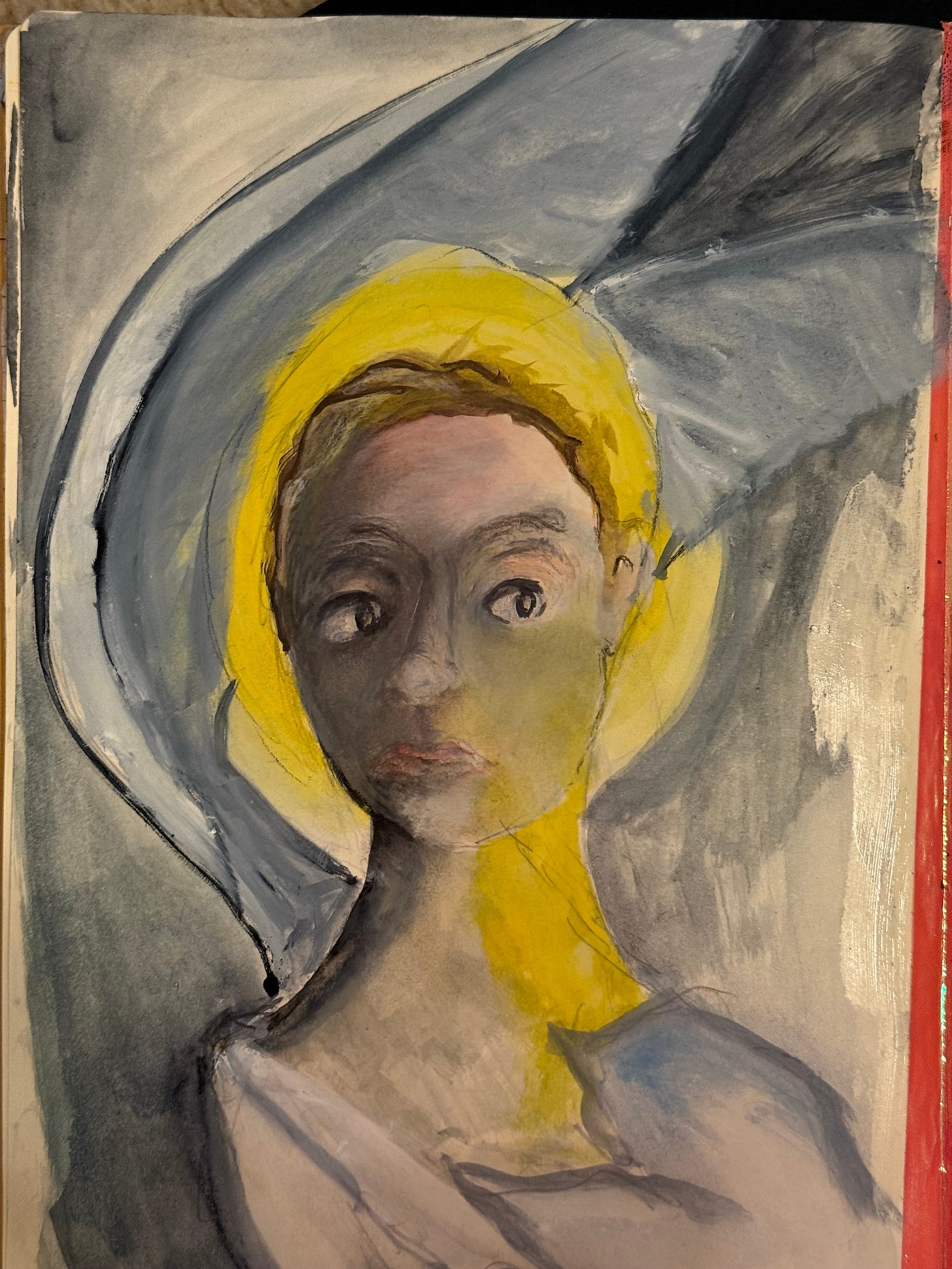The songs are in the air. The songs pervade the ether all round us. There are all kinds of ways to sift them from the noise. Over time, no single method will be more useful than another, but I figured that for my first post about writing songs, I would talk about one of my favorites. I call it “The Iris.”
Here’s the thing, it’s easy to write a song once you know what it’s about. If you know the subject matter and the form and the mood, then even if a single word hasn’t been written down, the song is a solved crossword puzzle, just awaiting being filled in. If you don’t know any of these things, that doesn’t mean you don’t have a song, it means that you need to open your filter up a little.
It won’t come as a surprise to most of you that our reality is based upon a set of filtered assumptions. At all times, the amount of information that your body is receiving from the “external” world is so stupendously vast that we need to be able to filter out extraneous information that doesn’t appear to pertain to our immediate survival. Our brains would rather we didn’t even think about all that stuff; the more attention that we pay to input the brain considers unnecessary, the more resources the brain must devote to them. The brain doesn’t like surprises — it just wants to do its thing, damn it. Widening the filter of information coming through means that the brain will be surprised, and that means extra resources will be needed that the brain would rather spend on the predictable tasks it does so faithfully.
Here’s the thing, though. If you can convince your mind that widening its filter is fun and full of joy, it will begin to loosen up a bit there are all kinds of ways of widening the filter, and I’ll get into them as this series progresses, but for now, let’s just agree that your brain enjoys a bit of fun, too, sometimes, even if it isn’t always a party animal.
The first method I discovered for writing songs from nothing is still one of the most mysterious to me, and I call it The Iris because that was clearly what it was the first time I discovered it. I’ll tell that story some other time as well. For now, I’ll tell you how I wrote “To the Dogs or Whoever.”
During the Historical Conquests sessions, I was often writing in the studio in the hours and minutes before we’d record. That was the challenge that I wanted, as it would force me to work quickly, think less, and create more intuitively. With less time to write, I would sit down in the morning with my cup of coffee and my notebook and close my eyes.
I have an iris in my mind. It looks like the iris of my regular eyes, but it floats somewhere down in the twilight zone between awake and dreams. When I close my eyes, I pretend that I’m swimming down deep into lake water. It gets darker, and darker until there’s just a dark void. That’s where I wait. The Iris is shy and it won’t speak over anyone else.
When it appears, there is no mistaking it. The iris is purple-blue, and as it floats nearer, I watch and wait. When it is so close that I could grab it, I ask for it to open. The iris dilates, wider and wider, and as it does, the images begin to fly from out of the blackness beyond.
I’d been using this method for awhile. I wrote Wings this way, as well as Thin Blue Flame, so I sat down that 2008 morning in a patch of sunlight and closed my eyes. As the iris opened, a saxophone flew out. Weird. Next came an apple, a shattered crystal vase, and a pair of underwear. I didn’t know what any of these meant, but I wrote them down. Another fifteen minutes of scattered images, and then something that felt significant. Out of the iris came a voice: “I thought I heard somebody calling,” then the image of a whale, then of a boy sleeping in the dark, awakened by the words, “in the dark I thought I heard somebody call.”
The rhythm of the phrases worked well together. The cadence setup a scaffolding chorus that verses could swirl around beneath, if only I knew what the song was about. I looked closer, and saw the through-line that I hadn’t recognized while I’d been writing down the images from the iris. Joan of Arc, Florence Nightingale, Samuel in the Temple, Jonah and the Whale. All of these people had heard a voice. I realized that To the Dogs is about hearing a voice that no one else can hear.
It’s very easy to dismiss intuitive writing as low-effort and non-specific, but using the Iris Method has never been about cutting corners. When you voluntarily suspend your editorial voice and simply take note of what is coming through the iris, you are receiving information that is not bound to any pre-existing goals. You are not writing a song to be a hit, or to convince your ex to take you back. You’re not writing to teach or to entertain. All that you’re doing is accepting what is being received.
I would never have written Dogs, or even thought about writing it, had I not used the iris in my mind. Initially, the pages of images and scraps of melody were just scattered and non-sensical, but as the conduit began to close and the iris sank back into darkness, I had more than enough to work with.
Like I’ve said already, the Iris Method is only one of many, many, ways there are to write. I’m offering it up to you, in the hopes that it’s useful!
Rock
Josh
P.s. I originally titled this song “The Historical Conquests of Josh Ritter,” but as the song came into focus, I realized that I’d already written the perfect title as part of another song (Empty Hearts). I changed the name of the song I was working on to “To the Dogs, or Whoever,” and made Historical Conquests of Josh Ritter the title of the whole album, instead.
Listen to a backstage recording of “To the Dogs or Whoever” below.








Do you realize the magic you're creating? Many of us have felt a profound, almost indescribable connection listening to your lyrics. We've experienced feelings we never knew we had. And in this very first Substack post, you've offered us a glimpse—a peek into the beautiful process where words become the music that lives in our hearts. This is so much more than fun; this is pure magic.
When I was in college, I wrote a short fiction story based on "To The Dogs or Whoever." That song and album was such a pivotal experience for me, I loved reading this!